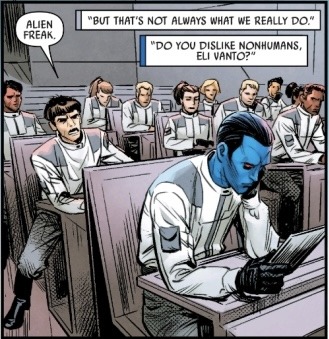#Imperial homes
Explore tagged Tumblr posts
Text




Jordanian Staircase, Winter Palace, St. Petersburg, Russia,
Source: piter places
#art#design#architecture#history#luxury lifestyle#style#luxury house#luxury home#russia#st petersburg#palace#imperial#imperial palace#jordinian#grand staircase#stairs#piterplaces#winter palace
2K notes
·
View notes
Text
Green and Sustainable Features of Imperial Apartments Zirakpur
Imperial Apartments showcases an array of green and sustainable features that redefine modern living. Designed with eco-consciousness in mind, these luxurious imperial homes in Zirakpur integrate energy-efficient systems, such as solar panels and LED lighting, to reduce the carbon footprint. The apartments boast spacious balconies, allowing residents to enjoy fresh air and scenic views. With a dedicated recycling system and rainwater harvesting, Imperial Apartments Zirakpur promote sustainable practices. Furthermore, the complex features lush green landscapes and a community garden, fostering a connection with nature while providing a serene and sustainable living experience.

0 notes
Text
the undercurrent behind that post is a form of genocide denial for one reason or another—ukrainians are too annoying online, they're too "reddit," they (for lack of any other option) had to hitch themselves to the american imperial wagon, ukrainians are nazis, russia wouldn't do this, russia opposes the US, it's a class war, it's an inter-imperialist war, i don't trust the media, i don't know how to fucking read—that boils down to ignorance. complete unawareness. i can't count the number of times i've had to tell someone actually, a swathe of cities in the donbass have been reduced to the past tense, it's not just bakhmut, they're all rubble like gaza now, to be met with surprise and disbelief. they keep running filtration camps and raping people in the occupied territories
#tchaikovsky isn't an agent of russian imperialism we have to ban but the people saying it are losing their families and their homes#the same way that america picked up moral grace after backing ukraine the MLs picked it after backing palestine but they're decrepit
193 notes
·
View notes
Text

more dreamling dad au bc thats just what i do now apparently i like lazy afternoon naps and so do our boys
#dreamling#hob gadling#dream of the endless#morpheus#the sandman netflix#sandman fanart#a few people have asked me what the babs name is#ive been calling him Kian#and he gets jealous of Nightmare and wants to be scary too sometimes so his dad made him that horrific onesie#to kian's exact specifications thank u#my art#its important to me that people know kians got dreams dark hair and flair for dramatics but#hes also got hobs big dumb sunshine brown calf eyes that he flashes to get his way bc he also has hobs effortless charm#i also headcanon as he gets older he secrets handfuls of sand into his pockets from EVERYWHERE bc he wants to be like his dad#and hob has to be the sand police and has to make kian turn out his pockets on the doorstep every time they come home from anywhere#bc theres only so much vaccuuming even an immortal man can take#and kian does so but petulantly and while sporting dreams patented Imperious Pissy Face#they have a rule that kian is allowed to stomp as loudly as he wants to his room but isnt allowed to slam doors#in this essay i will-
2K notes
·
View notes
Text
Pictures for those with limited education & reading comprehension.

#israel#secular-jew#jewish#judaism#israeli#jerusalem#diaspora#secular jew#secularjew#islam#islamic jihad#al asqa#Islamic imperialism#Islamic colonialism#colonialism#colonialism in pictures#never again#no ceasefire#bring them home#hostages#Gaza#hamas war crimes#temple mount
184 notes
·
View notes
Text




iPad baby Thrawn
#grand admiral thrawn#star wars rebels#He can’t go home The Ascendency doesn’t have games like the imperial data pads do
180 notes
·
View notes
Text
I feel like the Primaris should have been the catalyst for like, an imperial civil war. At the very least, much unrest in the house of Guilliman. Their existence, let alone rollout/integration, should have had many chapters absolutely rioting. It should be beyond the pale by several orders of magnitude and be seen as an enormous overreach by the more autonomy loving chapters, a blasphemy by the more orthodox chapters, and an existential threat to chapters with geneseed quirks. Plus anyone with any awareness of the thunder warriors should take one look at them and recognize the writing on the wall. Guilliman should absolutely recognize what they represent, what they imply. Like they're the leading wave of a paradigm shift that doesn't bode well for what came before. And I say this as someone who's not averse to Primaris, I just think they could've, should've, been a waaaay bigger deal. I know they loathe changing the status quo and we're never getting rid of the posterboys but I think we missed out on something interesting.
#40k#primaris marines#like if anything I think they should have made them even more different than oldmarines#to the point where they very literally *are* intended to be upgrades in some fashion#either in ease/reliability of creation or actual ability#or both#I personally would have had them be “streamlined” astartes that lack a lot of “advanced/niche” features of marines#in exchange for a much less demanding selection process and a much higher survival rate#augmented by Cawl-designed (and ofc primaris only) gear that Bobby G is putting a lot of resources into stockpiling#Primaris should be a revision to the design meant to address the flaws and weaknesses of the Astartes *from guilliman's perspective*#easier to produce easier to replace more reliant on imperial supply lines and locked down so they can't rebel without leaving everything#ultima founding chapters also should have had *very* short leashes and been Minotaurs tier agents of Imperial will#maybe even have some that are clearly out to eat other chapters' lunch and occupy their niches#especially problematic/autonomous chapters#hammer home the “we're replacing you with the upgraded models” message
68 notes
·
View notes
Text

Little Trooper
#dedicated to my boy who stood tough until he found a more suitable forever home#his name is Asshole#he's a nice boy#international cat day#cat fostering#cats of tumblr#cat#pet portrait#warhammer fanart#astra militarum#imperial guard#felinid#warhammer 40000#warhammer 40k#wh40k#artwork#animal art#pet art#cat art#cat illustration#artists on tumblr#illustration#illustrators on tumblr#goodnight everyone
67 notes
·
View notes
Text
In free Kherson, people are desperately going into toxic floodwaters amidst Russian shelling trying to save people and animals before they drown. In Russian-occupied Kherson, Russians are doing nothing to save civilians who are stuck on their roofs, screaming for help, and are shooting at those who do try to help. Witnesses have already seen elderly people who could not climb onto their roofs floating dead in the water.
Any "anti-war" leftist who still thinks that this war is just about meaningless borders, that there is "no war except class war," that Ukrainians THEMSELVES don't care whether they live under Russian or Ukrainian control - I have no choice but to think that you are a rancid ratfucker and wish you every bit of the "peace" you so desire for others.
#as I’ve seen Ukrainians reply on twitter: may your home end up on CNN#russia#ukraine#imperialism#peace#leftism
683 notes
·
View notes
Text

This is what the RRRRRR look like to me btw
#imperial radch#had to draw this on my phone at work or else I’d go insane#ash.art#idc it’s going in the art tag it will remind me to draw a real RRRRR at home#translation state#Ann leckie#ancillary justice
308 notes
·
View notes
Text

The "Blue Study"
Zubov Wing, Catherine Palace, Tsarskoe Selo, Russia,
The Blue Study or 'Snuffbox' of Catherine the Great Designed by Scottish architect Charles Cameron in the 1780s.
#art#design#architecture#history#luxury lifestyle#style#luxury house#luxury home#palace#imperial#russia#tsarskoe selo#zubov wing#study#snuffbox#charles cameron#1780s#catherine palace
408 notes
·
View notes
Text










Merry Christmas and Happy Holidays from The United Front!
#united front#meme#memes#anticapitalism#communism#socialism#free palestine#imperialism#capitalism#anti imperialism#christmas#merry christmas#merry xmas#merry crisis#xmas#karl marx#jeremy corbyn#batman returns#luigi mangione#a christmas carol#scrooge#banksy#home alone#vladimir lenin
34 notes
·
View notes
Text
Women-Led Games The Game Awards Edition is a Steam event hosted by Women-Led Games that started today, and there's plenty of visual novels participating in the event - including some of mine!
Canvas Menagerie, a comfy slice-of-life boys love romance about TV actors; Asphodelium, a melancholic lite horror boys love romance about killing cults; and Crimson Waves on the Emerald Sea: Amaranthine Moon, a Victorian vampire otome game about solving a mysterious death are all visual novels I'm making that are in the event!






But, there's also.....
A whole group of us visual novel developers in the event! Here's just a handful of women-led visual novels that have collaborated for this. Be sure to check them out!

Of Sense and Soul by @forsythiaproductions ✒️
Please Be Happy, Our Home, My Keeper, Love in a Bottle and Lock & Key: A Magical Girl Mystery by @vnstudioelan 🦊🖊️😈🌟
Imperial Grace by @synstoria 👑
A Date with Death by @twoandahalfstudios 💀
Velvet Bite: Softly, with Teeth by @studioeverium 🦇
#visual novel#visual novels#indie games#visual novel game#of sense and soul#a date with death#please be happy#our home my keeper#love in a bottle#lock and key: a magical girl mystery#imperial grace#velvet bite: softly with teeth#women led games#canvas menagerie#asphodelium#crimson waves on the emerald sea
29 notes
·
View notes
Text
Because tuatara are very long lived - between 100 and 200 years by most estimates […] - the founding of Aotearoa/New Zealand as a modern nation and the unfolding of settler-wrought changes to its environment have transpired over the course of the lives of perhaps just two tuatara [...].
---
[T]he tuatara (Sphenodon punctatus) [...] [is] the sole surviving representative of an order of reptiles that pre-dates the dinosaurs. [...] [T]he tuatara is of immense global and local significance and its story is pre-eminently one of deep timescales, of life-in-place [...]. Epithets abound for the unique and ancient biodiversity found in Aotearoa/New Zealand. Prized as “Ghosts of Gondwana” (Gibbs 2008), or as denizens of “Moa’s Ark” (Bellamy et al. 1990) or “The Southern Ark” (Andrews 1986), the country’s faunal species invoke fascination and inspire strong language [...]. In rounded terms, it [has been] [...] just 250 years since James Cook made landfall; just 200 years since the founding of the handful of [...] settlements that instigated agricultural transformation of the land [...]. European newcomers [...] were disconcerted by the biota [...]: the country was seen to “lack” terrestrial mammals; many of its birds were flightless and/or songless; its bats crawled through leaf-litter; its penguins inhabited forests; its parrots were mountain-dwellers; its frogs laid eggs that hatched miniature frogs rather than tadpoles [...].
---
Despite having met a reassuringly temperate climate [mild, oceanic, comparable to western Europe], too, the newcomers nevertheless sought to make adjustments to that climate, and it was clear to them that profits beckoned. Surveying the towering lowland forests from the deck of HMS Endeavour in 1769, and perceiving scope for expansion of the fenland drainage schemes being undertaken at that time in England and across swathes of Europe, Joseph Banks [botanist on Cook's voyage] reported on “swamps which might doubtless Easily be drained” [...]. Almost a century later, in New Zealand or Zealandia, the Britain of the South, [...] Hursthouse offered a fuller explication of this ethos: The cultivation of a new country materially improves its climate. Damp and dripping forests, exhaling pestilent vapours from rank and rotten vegetation, fall before the axe [...]. Fen and march and swamp, the bittern’s dank domain, fertile only in miasma, are drained; and the plough converts them into wholesome plains of fruit, and grain, and grass. [...]
[The British administrators] duly set about felling the ancient forests of Aotearoa/New Zealand, draining the country’s swamps [...]. They also began importing and acclimatising a vast array of exotic (predominantly northern-world) species [sheep, cattle, rodents, weasels, cats, crops, English pasture grasses, etc.] [...]. [T]hey constructed the seemingly ordinary agronomic patchwork of Aotearoa/New Zealand's productive, workaday landscapes [...]. This is effected through and/or accompanied by drastic deforestation, alteration of the water table and the flow of waterways, displacement and decline of endemic species, re-organisation of predation chains and pollination sequences and so on [...]. Aotearoa/New Zealand was founded in and through climate crisis [...]. Climate crisis is not a disastrous event waiting to happen in the future in this part of the world; rather, it has been with us for two centuries already [...].
---
[T]he crest formed by the twinned themes of absence and exceptionalism [...] has shaped this creature's niche in the western imagination. As one of the very oldest species on earth, tuatara have come to be recognised [in Euro-American scientific schemas] [...] as an evolutionary and biodiversity treasure [...]. In 1867, [...] Gunther [...] pronounced that it was not a lizard at all [...] [and] placed the tuatara [...] in a new order, Rhynchocephalia, [...] igniting a frenzy of scientific interest worldwide. Specifically, the tuatara was seen to afford opportunities for "astonished witnessing" [...], for "the excitement of having the chance to see, to study, to observe a true saurian of Mesozoic times in the flesh, still living, but only on this tiny speck of the earth [...], while all its ancestors [...] died about one hundred and thirty-five million years ago" [...]. Tuatara have, however, long held special status as a taonga or treasured species in Māori epistemologies, featuring in a range of [...] stories where [...] [they] are described by different climates and archaeologies of knowledge [...] (see Waitangi Tribunal 2011, p. 134). [...]
While unconfirmed sightings in the Wellington district were reported in the nineteenth century, tuatara currently survive only in actively managed - that is, monitored and pest-controlled - areas on scattered offshore islands, as well as in mainland zoo and sanctuary populations. As this confinement suggests, tuatara are functionally “extinct” in almost all of their former wild ranges. [...] [Italicized text in the heading of this post originally situated here in Boswell's article.] [...] In the remaining areas of Aotearoa/New Zealand where this species does now live [...], tuatara may in some cases be the oldest living inhabitants. Yet [...] if the tuatara is a creature of long memory, this memory is at risk of elimination or erasure. [...] [T]uatara expose and complicate the [...] machineries of public memory [...] and attendant environmental ideologies and management paradigms [...].
---
All text above by: Anna Boswell. "Climates of Change: A Tuatara's-Eye View". Humanities, 2020, Volume 9, Issue 2, 38. Published 1 May 2020. This article belongs to the Special Issue Environmental Humanities Approaches to Climate Change. [Bold emphasis and some paragraph breaks/contractions added by me. Text within brackets added by me for clarity. The first paragraph/heading in this post, with text in italics, are also the words of Boswell from this same article. Presented here for commentary, teaching, criticism purposes.]
#i posted commentary about this article in 2020 right after it was first published but i did a sloppy job presenting and discussing it#some might be familiar with boswells 2015 article on longfin eels or her article the stoat free state on weasels in aotearoa#basically she writes on british imperial environmental imaginaries#how settlement tries to reshape a colonys landscape in idealized english image of domesticated home replacing native species with introduce#ecology#abolition#imperial#colonial#landscape#paleo#aotearoa#indigenous#multispecies#black methodologies#indigenous pedagogies
76 notes
·
View notes
Text




i believe in nar shaddaa superiority
#JK EVERY PLANET ON THIS GAME IS LITERALLY AMAZING#but. SECOND ONE IS A VIEW FROM THE STRONGHOLD AAA home is home. nothings better#star wars#sw#star wars the old republic#swtor#imperial agent#the old republic#nar shaddaa#star wars planets#g posting
24 notes
·
View notes
Text
yeah yeah boomers don't get M*A*S*H, but gen-Xers watch that show with their third eye wide open
#i miss being home over break and binging it with my mom. she has THOUGHTS about american imperialism and the military-industrial complex#she was born in the mid 60s so she grew up seeing the vietnam war on the tv every night#my brother and i watched bug's life a lot and mom was like ''internalize this. ants outnumber grasshoppers 100 to 1''#''it's not about food; it's about keeping those ants in line'' is always her favorite line to say to us#shebbz shoutz#mash#m*a*s*h
97 notes
·
View notes